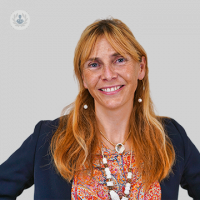Can your physical health affect your mental health?
Escrito por:Clinical psychologist at the London Cardiovascular Clinic, Dr Morwenna Opie discusses the importance of recognising how being physically unwell can impact a patient’s emotional wellbeing and why the conditions should be addressed together…

Physical health can absolutely affect your mental health! The strange thing is we see it as common sense that people will struggle emotionally when unwell, suffering, and unable to do the things they usually do to feel good. We also intuitively understand that being stressed makes us more susceptible to being unwell – but we sometimes forget all this when it comes to the concentrated focus of highly-specialised medicine.
The latter approach is excellent for solving discrete acute problems and means we have a wealth of cutting-edge highly specialist clinicians who save lives – however, we are missing a trick at times in losing the bigger picture of attending to our patient’s lived-experience, expectations, and quality of life.
It is a real problem that we are struggling culturally to shake off a C17th philosophy that separates mind and body, and thus physical and mental health. As a result, we miss opportunities to optimise well-being and have created a strange stigma about mental health as if it is distinct from other illness, more threatening, and more under a sufferer’s control.
Relatedly we narrowly try to define all symptoms as either psychological or physical - entailing separate treatment approaches (rather than recognising that nearly all symptoms are associated with some form of physiological change, interpreted by and responded to by our brain). Sometimes it is as if we think of our heads as separate from the rest of us – but the brain is an organ, influenced by all aspects of our health, our hormones and our environment. Just like the rest of our body, we can rarely treat one part separate from the whole; we are much more like an ecosystem than a machine.
Initially, some people are surprised that a clinical psychologist would be part of a cardiology clinic. Perhaps especially medics. Luckily, I am part of a very forward-thinking team at the London Cardiovascular Clinic, who are highly attuned to their patients’ well-being and recognise that multi-disciplinary and specialty clinical support is needed to achieve optimal outcomes. The truth is we nearly all do better with some psychological training – patients, caregivers and their clinicians. Medical professionals have high levels of psychological stress, burnout and mental-health issues than the general populations. Clinicians who are in therapy or undertake regular mindfulness meditation report less ‘heart-sink’ patients and better job satisfaction. So at all levels, participants in the healthcare system are soon converted to the benefits, for themselves and those they interact with, of looking after their whole-selves.
Just a few examples of support sometimes needed during the patient pathway include:
- Before diagnosis; when there is a lot of uncertainty and fear around prognosis and the future
- Managing difficult symptoms, such as palpitations, pain or dizziness (which naturally can create anxiety which can escalate the symptoms further)
- Other common roles include bringing together a wealth of overwhelming advice and information, helping with psychological adjustment to lifestyle changes (which unchecked can lead to depression, and worsening prognosis, helping get motivated to make lifestyle and behavioural changes, and navigating changes to relationships).
- Long-term ill-health inevitable requires some identity change, some help with how to still live a full-life, create a ‘take-home-able’ story and keep hope alive. If mental health is untreated not only is the patient suffering emotionally, but it seems this increases a generalised inflammatory state, stress and supports the disease process.
Conversely, treatment and optimising mental health can positively affect the disease process. We really are missing an opportunity to support optimal recovery when we do not support patient’s mental health.
In recognising that out health is an intertwined combination of mind and body factors – it seems to clearly follow that so too should be our healthcare. Much as it is interesting being part of a developing field, I much more look forward to this being a routine approach – and as much common practise as supporting our physical health and rehabilitation with diet and exercise as well as standard evidence-based medical care.



